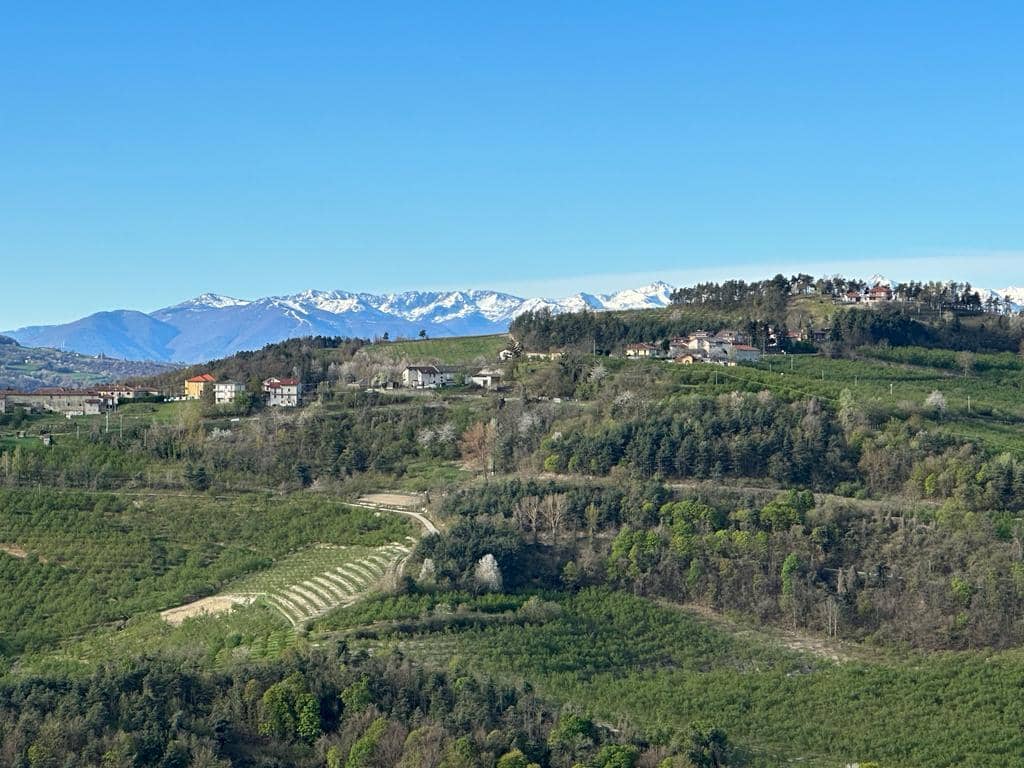by Virginia Baricalla,Cristina Sibona & Valentina Cagnasso & Marina Sacchetto
Intro
The Bossolasco-Murazzano Comprehensive Institute is composed of seven nursery schools, six primary schools, and four lower secondary schools for students aged 3 to 13 years old. It is in Alta Langa, a picturesque rural area in northwestern Italy famous for its natural beauty. The area is characterized by small villages scattered on the hillsides cultivated with hazelnuts and grapes or covered by woods.
The school aims to preserve the territory’s identity, where ancient farming traditions still survive and people live close to nature. The Institute also aims to promote practices related to environmental sustainability and strengthen the community as a place for growth and stimulation to become active protagonists.
Outdoor education and experiential teaching activities are crucial for our organization since they encourage students to immerse themselves actively in the territory and promote their psychophysical well-being, helping them manage stress and supporting their growth.

The experimentation of the concept of naturalistic intelligence and its practice in some classes of the school through this Erasmus+ Nature Intelligence project will favor teachers’ reflection on the best teaching approaches to develop in students a genuine connection with nature.
This will lead to a refinement of outdoor educational activities and bring students closer to their territory, promoting awareness of the beauty and importance of the landscape. In perspective, there could also be a reduction in migration from mountain contexts to urban ones.
Participation in Erasmus+ NI is consistent with the experimentation of our curriculum and, in particular, with a discipline called “Pride Place ”developed with the participation of the Institute in the Erasmus+ Pride of Place 2018-2020, and thanks to the numerous educational and training activities aimed at implementing the practice of outdoor learning in our school, including Erasmus mobility to Finland and Sweden in the years 2018-2019 and 2022-2023.
At the Bossolasco-Murazzano Institute, an activity highly appreciated by primary and lower secondary school classes is that of the vegetable garden, particularly the “Joyful Vegetable Garden” project: an excellent example of how naturalistic intelligence can be developed in a fun and engaging way. By studying, observing, and then planting with their own hands seeds donated by some local farmers who had kept them for generations, students had the opportunity to learn about the growth processes of plants and how biodiversity can be preserved. Furthermore, the activity allowed them to learn many things about endangered species, such as the Spanish bean, which in the past was a source of income for the population of one of the surrounding villages.

The collaboration with Mrs. Fiorella Rapalino has made it possible to carry out this project by using her vegetable garden, which is located near the school and fully available to the students. During winter, the children sowed chard and valerian, watering them and monitoring their growth. In the spring, they harvested the valerian and, together with Mrs. Fiorella, prepared a healthy and tasty snack: by adding hard-boiled eggs from the chickens living near the vegetable garden and oil from nearby Liguria, they made a salad that also has a symbolic value because it was the one that farmers prepared with the arrival of spring to detoxify after the harsh winter, during which they mostly ate polenta, pork sausages, dried chestnuts, and cabbages.
This activity has offered a unique and engaging experience for the students, who have had the opportunity to taste new foods and increase their knowledge about plants and the nature surrounding us. Moreover, the vegetable garden has created an environment of cooperative learning and knowledge sharing, helping the children develop naturalistic skills and respect for the environment.
The experience of the “Joyful Vegetable Garden” has helped the students strengthen their naturalistic intelligence by celebrating food and nature. By tasting the fruits of their labor, the children have created a deeper connection with the food and the land from which it comes, developing a sense of gratitude for nature’s gifts.

Furthermore, working in the vegetable garden can also have a spiritual aspect, as it promotes respect for the environment and the importance of balance and conservation of nature: it makes one feel more deeply connected to the natural elements and their cycles, clears the mind and opens it up to welcome novelty and diversity. Teachers can also use the vegetable garden activity to discuss with students the importance of healthy food and conscious dietary choices, sensitizing them to the impact of their choices on the planet and personal and global health.
The Bossolasco-Murazzano Comprehensive Institute is committed to preserving the territory’s identity and promoting sustainable practices and outdoor education through engaging and fun student activities. Participation in the Erasmus Plus project to develop naturalistic intelligence and collaboration with Mrs. Fiorella Rapalino in the “Joyful Vegetable Garden” activity are just a few examples of how the school effectively pursues these objectives.




